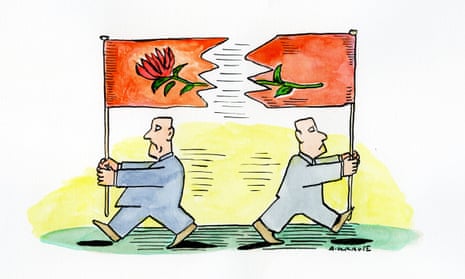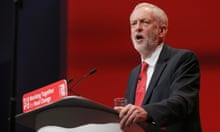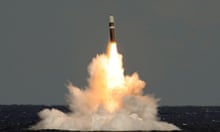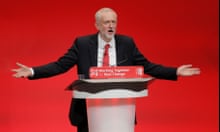Mountaineers call it the death zone. Above a certain altitude, the atmosphere becomes so thin that a human body ceases to function properly. For intrepid climbers, it is worth attaining such lethal heights for the elation of looking down on the world from above.
Jeremy Corbyn has reached that dizzy peak. Owen Smith’s rival team had neither the tools nor the agility to catch him. The rebels are stranded on the sunless rock in isolated, shivering bands without ideas or reinforcements. Most disown Smith’s campaign as a botched attempt to woo Corbyn supporters with faint praise for their champion – depicting the incumbent as virtuous but incompetent. Right mountain, wrong route.
Now Corbyn’s flag is planted way above their heads, saluted by an army of 310,000. Many joined the party recently because they agreed with the current leader’s destination, not because they wanted an argument about footholds along the way. It is neither helpful nor true to suggest they are all Leninist stormtroopers. Most are undogmatic civilians who find in Corbyn a refreshing clarity about ending poverty, fighting inequality, preferring peace to war.
For Corbyn-sceptic MPs to have surrendered ownership of such uncontroversial ambitions in the eyes of so many Labour members is a catastrophic blunder. Their message now sounds ludicrous: you left us behind, they cry, but you’re on the wrong bloody mountain. You can’t take seats from the Tories up there. Come rescue us and we’ll lead you!
But while the mass of Corbyn supporters enjoy the view, some know that their ascent over the summer was a distraction from more formidable obstacles. Corbyn’s personal ratings are among the worst ever recorded by any opposition leader. According to one survey, even 29% of voters who backed Ed Miliband to be prime minister in 2015 now say they would choose Theresa May over Corbyn. There is no precedent for a candidate coming back from that cold place to Downing Street. It is the death zone.
This explains why Labour’s pro-Corbyn wing is struggling to keep a united front at the party conference in Liverpool. The shadow defence secretary, Clive Lewis, nominated Corbyn for the leadership in 2015 and has been one of his most articulate cheerleaders. Yet he has been caught up in a squabble that is both petty and revealing.
Lewis is no fan of Britain’s nuclear weapons. But on Monday his speech accepted that parliament has voted to renew the deterrent, and that official policy supports renewal. It was then reported that Corbyn’s communications chief had amended the speech on the autocue moments before delivery, blurring the line on whether Trident is now a settled matter.
Lewis is said to have been enraged by the intervention, although the tenor of his anger – allegedly punching a wall in fury – is disputed. It is still not entirely clear that acceptance of current policy precludes a change in the near future. Lewis thinks it does. The shadow chancellor, John McDonnell, says not.
This tremor is caused by a subterranean fault line in Corbynism, which has hitherto looked monolithic. Lewis understands the problem with unilateral disarmament. To keep pushing the case makes it harder to lure parliamentary colleagues back to a Corbyn banner and alienates voters, who think it signals unworldly pacifism. The trade unions that represent workers in the nuclear industry cannot endorse a policy that would make thousands of their members redundant.
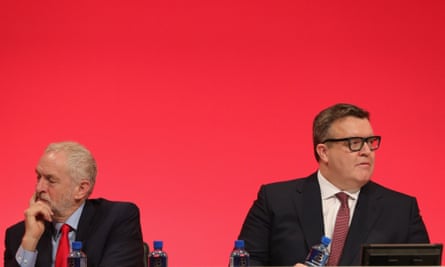
But opposition to Trident is also a point of principle for Corbyn and many of his followers. To walk away from that conviction for reasons of electoral pragmatism is the kind of grubby compromise that offends their Pentecostal spirit. This dilemma points to an emerging schism around the leader. Some allies want to reach out to MPs, rebuilding a frontbench team that might project some semblance of unity. That needn’t mean allowing “Blairite” cuckoos into the nest, only recognising that there is a “soft left” whose support is a precondition for a functional party.
The counter-view is that some dysfunction in parliament is no bad thing. It sustains the idea that Corbyn represents a nobler power outside Westminster and is being held back by reactionary New Labour elements inside the Palace of the Establishment. Having an internal enemy was a galvanising force during the leadership race. Losing that target forces Corbyn to address the trickier task of converting Tories.
To understand the hardline position, it is worth remembering that McDonnell hails from the radical Marxist tradition, which does not see parliament as a necessary road to socialism. It might be a way-station but real change is effected by mobilising the masses to apply pressure on capitalist institutions. Corbyn appears to suffer from conflicting impulses on this point. He hates confrontation with colleagues (he lets McDonnell do much of the talking in meetings). But he is also steeped in the romance of the street uprising. He would ideally float above the fray, speaking the language of conciliation while turning a blind eye to mob-handed tactics of MP deselection.
That balancing act permits contradictory accounts of the very nature of Corbyn’s project. It is cherished by supporters as a spontaneous, grassroots expression of hope for a new kind of politics, and reviled by opponents as the vehicle for an older and more aggressive doctrine. It can be both, of course.
The different elements have not yet been disaggregated, because they have had a common foe; although vanquished, it can always be revived. It would not be hard for Corbyn to provoke MPs into open hostility, inviting them to re-enact the battles he has just won. And it will be difficult for MPs who think Corbyn’s direction is ruinous to pretend otherwise, feigning unity in the hope of forcing him to test his appeal with a wider electorate.
But from their precarious ledge they cannot force the leader to scale a different mountain to the one he has conquered. And it is easier for him to keep his troops busy dislodging the demoralised enemy below than to admit that the summit of real power lies on a distant horizon.
